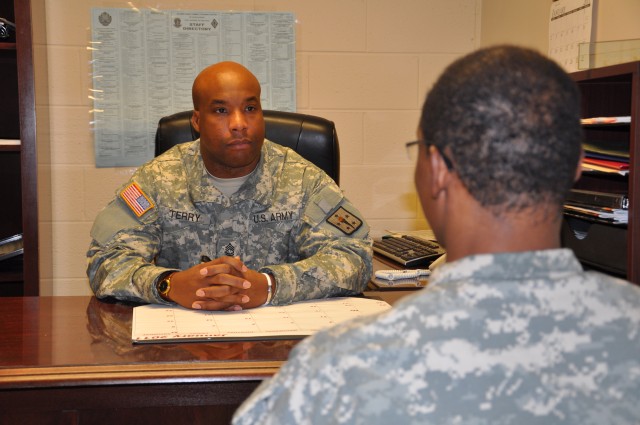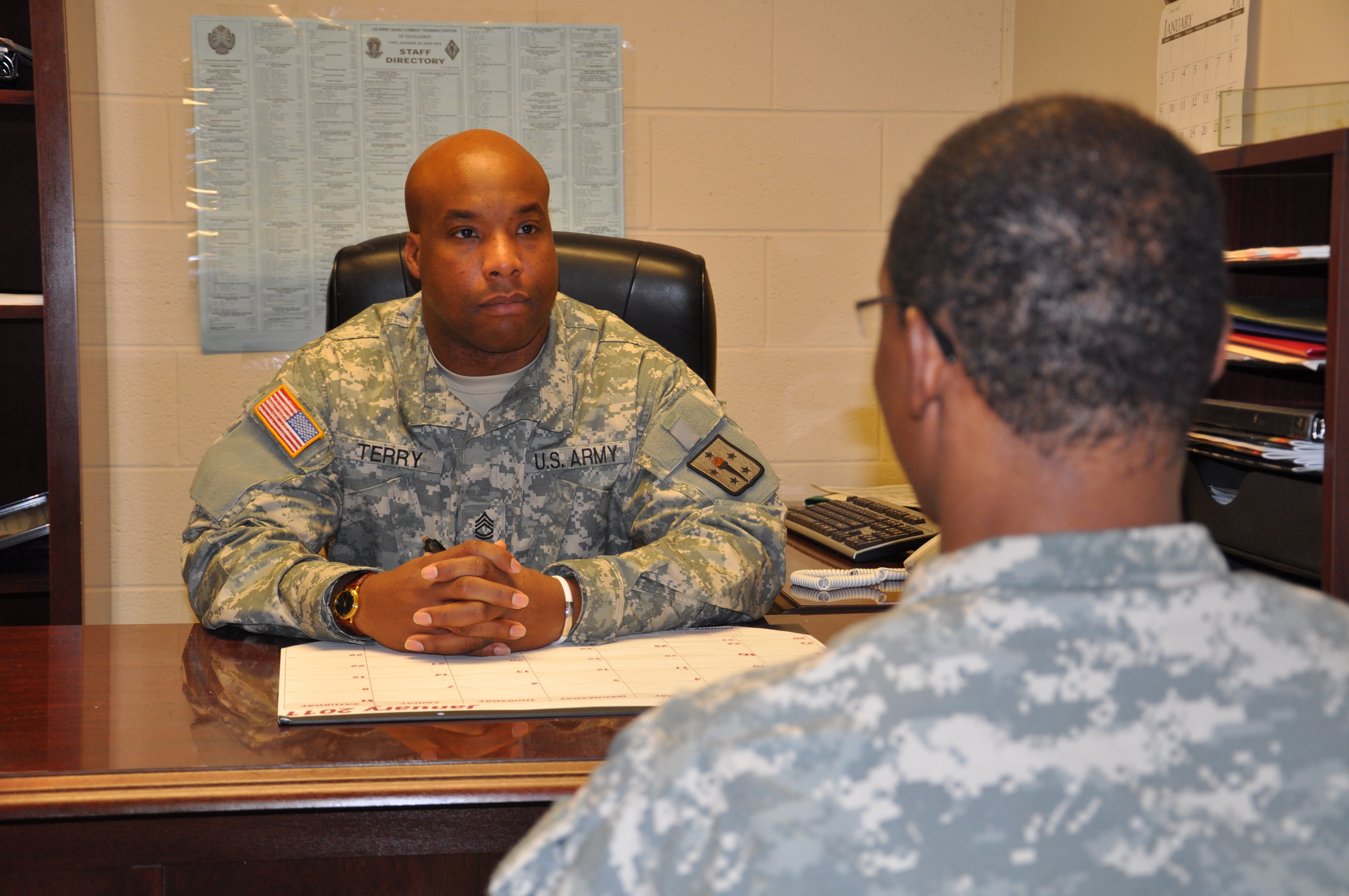FORT JACKSON, S.C. -- The Army has come a long way when it comes to dealing with sexual assault, and it's only going to get better.
That's according to representatives of Fort Jackson's Victim Advocate Program, who guide victims of sexual assault to get the help they need.
"The program is good; it has progressed so much from what it used to be," said Sgt. 1st Class Aurora Santiago-Hildebrand, a unit victim advocate for the 120th Adjutant General Battalion. "Sexual assault wasn't acknowledged before. ... Now that Gen. (George) Casey has taken this issue to heart, I feel confident the (incidents) will be reported more and will occur less often."
Through the VAP, victim advocates support Soldiers and their family members during the medical, investigative and judicial processes that occur once they have reported sexual assaults.
Victim advocates provide emotional support, as well as safe and confidential ways for victims to seek assistance. They inform victims of their rights and of available resources and coordinate services from various military and civilian agencies. They may also act as liaisons between service members and their chains of command.
Santiago-Hildebrand said if the VAP had been in place in the early 1990s, the outcome of her own sexual assault case early in her Army career would likely have been different.
Sixteen years ago, Santiago-Hildebrand was a newly enlisted military police officer at her first duty assignment when she was sexually harassed and sexually assaulted by a senior noncommissioned officer in her unit.
"This was a guy who was supposed to take care of me," Santiago-Hildebrand said. "Instead he stalked me."
After enduring months of abuse, Santiago-Hildebrand made an Equal Opportunity complaint against the NCO. Even armed with 19 explicit letters the NCO had written to her describing what he would like to do to her sexually, Santiago-Hildebrand was rebuked by her superiors for making the claims, and her letters mysteriously disappeared, she said.
"They scolded me and told me I better not talk badly about any senior NCO ever again," Santiago-Hildebrand said. "I wish in 1994 I had a UVA, but I didn't," she said. "If what had happened to me then happened today, and if I had a UVA, that (offender) would have gone to jail; I guarantee you that person would be in jail."
Today, in her role as a UVA, Santiago-Hildebrand said she does everything she can to assist sexual assault victims so they are not re-victimized in a similar fashion.
"(Victims) want to know you are going to help them, that you are not going to judge them and you're not going to put them on display," Santiago-Hildebrand said. "They don't want to be ridiculed or shamed. They know I will go to the end the world for them, to give them help."
Fort Jackson has four civilian installation victim advocates, and each battalion on post has two unit victim advocates.
Installation victim advocates have educational and professional backgrounds in counseling, education, social work or other related human service fields, and prior experience dealing with sexual assault cases, said Denetra Washington, Fort Jackson's Sexual Assault Response Coordinator, who oversees the program. Unit victim advocates are noncommissioned officers, staff sergeant and above, and officers, first lieutenant and above, appointed at the battalion level who perform VA duties in addition to their regular jobs at their respective units. All VAs receive 40 hours of mandatory sexual assault training.
Sgt. 1st Class Murphy Terry, UVA and equal opportunity adviser for the Soldier Support Institute, said the position is not a, "Hey, you," job that any Soldier should easily be appointed to.
"It's emotional and it's stressful," Terry said. "I think this job requires a person who is understanding and compassionate; someone that understands that this (victim) has had a significant emotional event that has happened in (his or her) life."
When advocates help victims, they must make the victims priority before all other duties, Terry said, whether that means getting up at 2 a.m. to assist or spending months working with the victim.
"There's no time frame for when (a victim) can get sexually assaulted," Terry said. "If someone gets sexually assaulted at 1 o'clock in the morning and that victim wants you to be there, you need to be with that victim. And some victims may need support and services for several months."
Some UVAs occasionally face added pressures from commanders who want to know more information about their Soldiers' cases than they are allowed to know. For that very reason, Terry gives IVAs much credit for successfully getting victims to report sexual assaults while maintaining their privacy.
Because the chain of command for civilians is organized differently, Terry said, "They don't succumb to command influence."
VAs help victims report sexual assaults in two ways: restricted or unrestricted.
Unrestricted reporting allows sexual assault victims to get medical treatment, counseling and an official investigation of the crime, and the reports are channeled to the Soldiers' chains of command and to the Criminal Investigation Division.
Restricted reporting allows victims to confidentially disclose the crime to receive medical treatment and counseling without getting their units or law enforcement involved.
"The big difference is the victim is still being taken care of, but the offender is not being held accountable," Terry said.
Santiago-Hildebrand agreed.
"When you report restricted, you're allowing offenders to continue to do what they have done," she said. "You're giving them the freedom to continue in their ill behavior. You can't put an end to something if you don't start somewhere."
Offenders who are found guilty of sexual assault can receive punishment under the Uniform Code of Military Justice ranging from one year for wrongful sexual contact all the way up to life in prison or death for rape. And founded or unfounded, an unrestricted report of sexual assault lingers in a Soldier's records for 40 years.
For more information, call the Installation Victim Advocate or the Sexual Assault Response Coordinator at 429-4870. To report a sexual assault, call the 24-hour crisis hotline at 1-800-491-RAPE.


Social Sharing